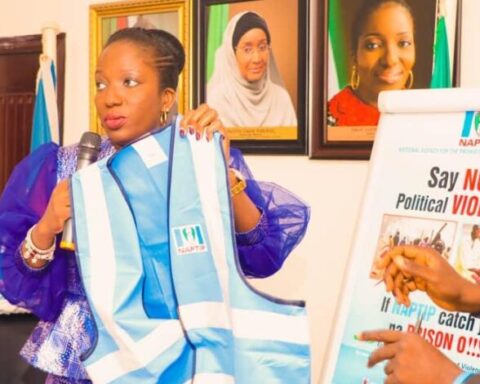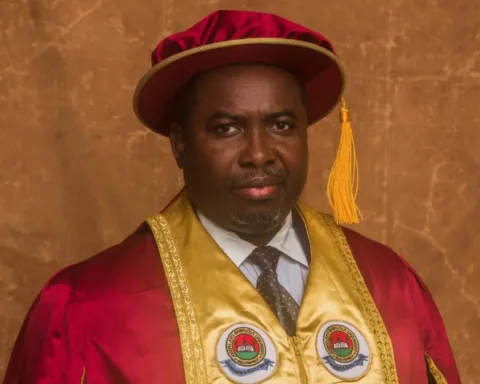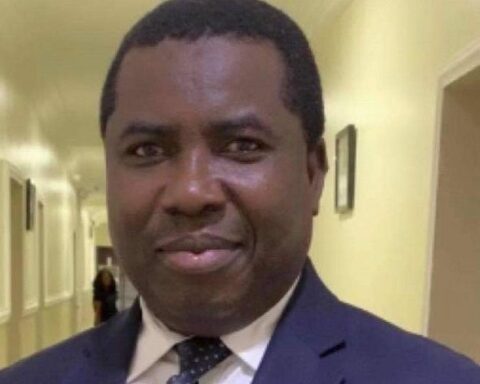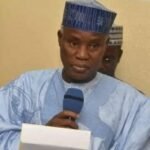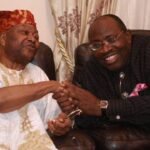In nations where conscience still governs conduct, crime is punished. In Nigeria, it is decorated. What ought to provoke outrage has become the rhythm of our national culture — forgery rewarded, deceit normalized, and integrity dismissed as naivety. The moral tragedy of our democracy is not merely that corruption exists, but that it thrives with applause. Those entrusted with public trust have become merchants of manipulation, and the institutions built to preserve truth have been quietly converted into sanctuaries for fraud.
Peter Obi, a presidential aspirant whose public voice increasingly echoes the frustrations of the nation’s moral minority, recently declared that“Nigeria has become a crime scene.”It was not hyperbole; it was diagnosis. From the local councils to the presidential palaces, forged documents, perjured affidavits, and manufactured qualifications now serve as passports to power. Across the civilised world, such deceit is treated as treason against public morality. In Indonesia, as Obi observed during a policy dialogue with that nation’s leadership, a forged certificate attracts immediate disqualification and prosecution. In Nigeria, it earns you a convoy and a national honour.
The Independent National Electoral Commission (INEC), the supposed sentinel of electoral sanctity, has turned into a silent spectator in this theatre of falsehood. When allegations of forgery arise, the Commission hides behind legal technicalities, and the courts, wedded to procedural fetishism, dismiss such matters as“pre-election issues.”In doing so, they unwittingly sanctify criminality. Thus, the electoral system, once designed to sieve for integrity, has become a sieve of convenience — allowing dishonesty to pass through, and truth to be trapped at the margins.
Politics in Nigeria has ceased to be a vocation of honour; it has devolved into a profitable franchise of fraud. Those who once lied to secure admission into institutions of learning now lie to secure the institutions of governance. They perjure before God and man, then swear oaths with trembling hands on the sacred Book they betray daily. They speak of reform while thriving on rot. They recite transparency while practising treachery.
Abraham Lincoln once warned that while one can fool all the people some of the time, and some of the people all the time, no one can fool all the people forever. Nigeria’s political elite have tested this theory to its limits. They have built dynasties of deceit upon the docility of the governed, forgetting that every generation eventually births its own revolt. Today, the winds of truth gather slowly, restless and thick with discontent. The young no longer clap for thieves in agbada nor cheer deceit disguised as destiny.
The decay is systemic. The moral corrosion from the apex of leadership seeps downward until it becomes cultural instinct. When forgery ascends the throne, truth becomes exile. When deception is crowned, integrity becomes the jest of the market square. Chief Obafemi Awolowo, whose politics of probity remains the gold standard, once declared that the greatest glory in leadership is integrity. Yet, in today’s Nigeria, integrity is not only endangered — it is despised. The honest are mocked as naïve; the fraudulent are hailed as“smart.”
The judiciary, meant to be the final refuge of justice, too often behaves like an accomplice to moral collapse. When courts trivialize forgery as mere procedural defect, they don’t merely misapply the law — they wound the conscience of the nation. Justice is not bureaucracy; it is moral clarity. When justice is blinded by technicality, corruption dances in daylight. Barack Obama, reflecting on governance, said,“If people cannot trust their government to do the job for which it exists—to protect them and promote their common welfare—all else is lost.”That is precisely Nigeria’s tragedy: every forged certificate is a crack in the foundation of national trust.
But our tragedy deepens when citizens become complicit. We canonize politicians because they share our surnames. We defend fraudsters because they attend our churches. We glorify thieves because they donate to our weddings. An Igala proverb warns that“he who feeds a snake should not weep when bitten.”Nigeria has fed serpents of deceit for too long. Now, the venom courses through every artery of governance.
Truth must, therefore, be restored as the soul of leadership. A forged certificate is not a minor flaw; it is a fundamental moral fraud that disqualifies its bearer from the sacred duty of governance. Political parties must stop shielding deceivers beneath partisan banners. INEC must evolve from a commission of elections to a commission of ethics. The judiciary must abandon its mechanical blindness and rediscover its moral sight. And the people must learn that silence in the face of lies is itself a form of treason.
Reform must begin with law and conscience. Anyone seeking public office — from councillor to president — should be mandated to submit all academic and professional credentials at least six months before elections. These documents should be made publicly available for verification. Transparency must become institutional, not ceremonial. Ministers, commissioners, aides — all must be held to the same ethical mirror. A leader surrounded by fraudsters cannot govern in light. Dishonesty, once enthroned, multiplies like locusts; it devours competence, merit, and hope.
Nnamdi Azikiwe, the Zik of Africa, once affirmed that integrity is the foundation upon which all other virtues rest. When that foundation collapses, education becomes fraud, religion becomes commerce, and politics becomes organized robbery. Nigeria has lived too long in that collapse. But hope lingers, embodied in a restless youth demography that refuses to bow to decay. The young are asking new questions, demanding accountability, seeking a moral resurrection. They are weary of leaders who mistake degrees for decency and certificates for character.
The renewal of Nigeria cannot be built on deceit. A man who forges a certificate cannot build a nation — he can only forge its destiny into ruin. Peter Obi’s call for moral rebirth is therefore not idealism; it is necessity. The new Nigeria he envisions will not rise on concrete or contracts but on conscience and credibility. Mahatma Gandhi once said,“The moment there is suspicion about a person’s motives, everything he does becomes tainted.”Nigeria today suffers precisely from that taint. The world doubts our claims because forgery has become the fragrance of our politics.
Yet there is redemption in truth. Let the nation rebuild its moral architecture, one citizen at a time. Let honesty be fashionable again. Let every forged document burn under the heat of scrutiny. Let the ballot be purified of deceit. Let the courts interpret law as a living covenant with truth. Let INEC rise from its slumber and act as custodian, not spectator. Let the universities, professional bodies, and religious institutions refuse complicity in silence.
Until that day dawns, Nigeria’s democracy will remain a masquerade—dancing boldly in daylight, but clothed in deceit. A new Nigeria is not a fantasy. It is a future waiting for courage. But that future will only arrive when truth becomes our new certificate, and integrity, once again, the qualification for power.
– Inah Boniface Ocholi
writes from Ayah – Igalamela/Odolu LGA, Kogi state.


